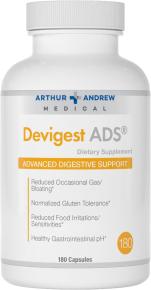The omega oils are a great dietary or supplemental choice for many reasons, for many people. It's especially true for people who want to keep their skin youthful looking.
But did you know that they also may alleviate some chronic or occasional skin conditions?
How Do Fatty Acids Help Your Skin?
Just how essential to skin health are the so-called essential fatty acids?
Initial Studies on Omega Oils
Nearly 100 years ago, researchers put rats on a no-fat diet. Among other health problems, the rats developed skin abnormalities and transepidermal water loss.
Reintroducing saturated fats did not reverse the skin damage, but when the rats were fed polyunsaturated fatty acids—omega 3s and 6s—the skin issues completely cleared up.
How Omegas Can Help Your Skin
We know now that both 3s and 6s are critical to keeping your skin healthy and looking its best.
- Omega-3 fatty acids contribute to immune function.
- Omega-6 fatty acids contribute to the skin’s structural integrity and to its barrier function.
For Inflammation
Both omegas 3 and 6 can also control inflammatory skin responses.
Most Americans do not get enough gamma linolenic acid (GLA), a powerful anti-inflammatory from the omega-6 family.
Omegas as a Remedy for Skin Flare-ups
If you or a family member deals with a skin condition, consider omegas, especially omega 3s.
In addition to playing a role in the overall health of your skin, they can improve a variety of skin disorders.
Consider the research:
-
Acne
Researchers divided 45 people with mild to moderate acne into three groups:
- an omega 3 group who received 2,000 milligrams (mg) of eicosapentaenoic acid and DHA
- a borage oil (omega 6) group who received 400 mg of borage oil
- a control group
After 10 weeks of supplementation, they found a significant reduction in lesions in both omega groups.
-
Eczema (Atopic Dermatitis)
A 2014 meta-analysis of research on atopic dermatitis (known as eczema) suggested that evening primrose oil (an omega 6) and the omega-3 fatty acid docosahexaenoic acid (DHA) may help some sufferers.
Later, a 2015 German study found omega 3s may help prevent atopic dermatitis, also known as eczema.
-
Psoriasis
Scientists reviewed studies of different dietary supplements used by psoriasis patients, including vitamin D, vitamin B12, selenium, and the omega-3 fatty acids found in fish oils.
They found that the fish oils provided the most benefits.
-
Rosacea
In a 2016 randomized, controlled study of people with dry-eye symptoms stemming from rosacea, people were given either omega-3 fatty acids or a placebo twice a day for six months.
The researchers found the symptoms of those who received the omega 3s significantly improved.
Sources of Omega 3s and Omega 6s
The essential fatty acids can’t be made in the body, so we need to get them through food or supplements.
You can get omegas through the food you eat, as dietary supplements, and even as topical supplements that you apply directly to your skin.
-
Omega 3s
The standard American diet is typically too low in omega 3s.
Omegas can be found in many foods, but great sources include:
- dark greens
- walnuts
- canola oil
- flaxseed
- fatty fish
- salmon
- tuna
-
Omega 6s
Most Americans actually consume too much omega-6 fatty acid!
That's due to its presence in commercially processed vegetable oils and grains.
Omega 6s can be found in a variety of sources:
- some high-protein foods, like:
- meat
- eggs
- tofu
- certain oils, including:
- safflower oil
- evening primrose oil
- borage oil
- some high-protein foods, like:
-
Gamma Linolenic Acid (GLA)
Good sources of GLA include:
- borage oil
- evening primrose oil
- black currant seed oil






